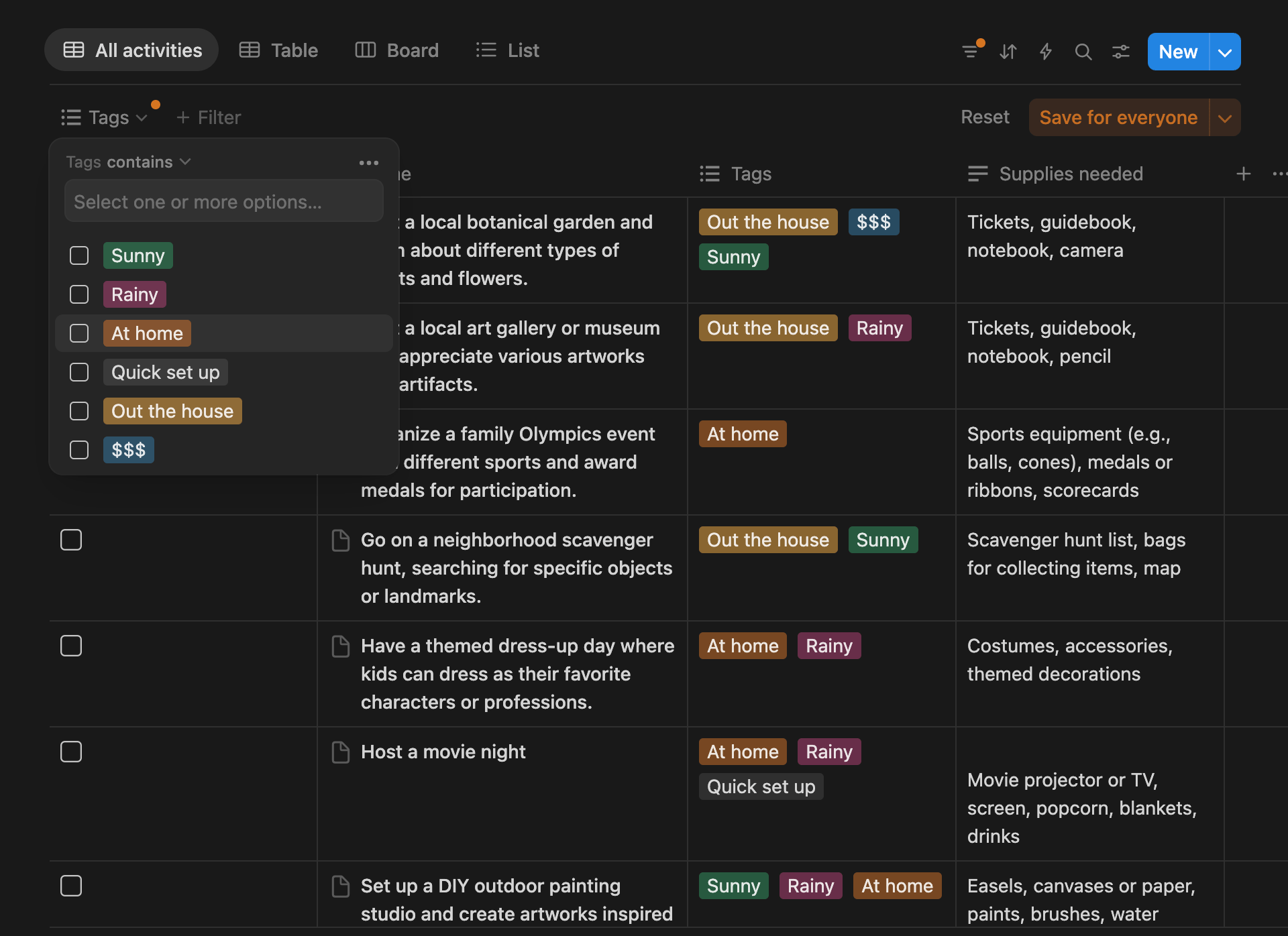- Playroom Parenting
- Posts
- ☀️Getting through the summer, while keeping your cool 😎
☀️Getting through the summer, while keeping your cool 😎

Weekly newsletter
Brain-based parenting
My kids woke up at 6am this morning, despite pleading with them to have a lie in on the first day of the summer holidays! We are now 5 hours into the summer holidays, and I am already just a little bit concerned about how I will manage work and childcare for 6 whole weeks! I always lean on structure when things seems a little chaotic and uncertain. Kids benefit from predictability too.
Here is a quick guide to help you cope!

School summer holiday guide
Create some structure
For a few days, your kids might want to relish being in PJs and having (what feels like too much) screen time. That’s ok, they’ve just finished school and they probably just want to decompress from it all. But it’s easy to fall into a pattern where you find yourself constantly needing to entertain them (usually while juggling work). So create some structure.
Work it out together
Work with them to decide what will work best. Perhaps every morning they have to get up, get dressed, make their bed and then go outside for some morning exercise. Or pop on a Danny Go or Just Dance episode on You Tube and do a little dancing to get you energised. You can set up a rewards system if it helps motivate them
Decide on meals and snacks
Decide together on some snacks they can eat (and ideally access themselves) throughout the day. You can bake muffins and flapjacks with them as an activity, ensuring there is always nutritional food available that satisfies their sweet tooth. You can make a banana bread together in less than 20 minutes.
Create a summer bucket list
Decide on some things you want to achieve through the summer. It might be reading 3 books (1 over two weeks each). You can go to the library or a bookshop to choose them as another activity
Stop stressing about screen time
Remember the analogy that screen time is like food. There is no good or bad food, some food you have to eat in moderation, some children have different needs (particularly neurodivergent children), its the content that counts. You can use a traffic light system, like food. Green is unlimited - think exercise/game based screen time like Just Dance or floor is lava or educational content/games; Orange is within moderation - like shows with narratives, movies, games like Roblox (with safety properly in place) and Red is YouTube and short form content- strictly limited in how long is spent on them and ideally with supervision.
Let them be bored It is true that creativity thrives in boredom. We feel the need to constantly entertain our kids, but boredom allows their brains to be naturally curious. If you need to encourage them, put up a tent, leave out some cardboard boxes, or get out some paints and then leave them to it.
If you want a summer bucket list already full of ideas. You can find one in my notion template. You can filter by weather,cost at home or outside and it gives you lots of ideas and the kit you need.The whole thing is embedded within my ultimate family organiser which also contains family friendly recipes and AI prompt guides for kids.

Want more of this in a way that is easy to digest and gives you quick daily tips? My new expert parenting playlist has launched - 3 minutes and under to effective and intentional parenting
The why and the how….
I get it, evidence-based parenting sounds complicated- suddenly I need a neuroscience degree to be a good parent? Absolutely not, that’s what I am here for! I want to translate all the really great science, into actionable (and simple) parenting that you can be confident comes from real evidence.
It's built on a simple, two-part structure:
The "Why" (The Science): In a short video you can watch or listen to on your phone, I'll explain exactly what's happening in your child's brain at their specific age (2-3, 4-5, or 6-8).
The "How" (The Action): You will then get one actionable tip and one simple thing to try that day.
That’s it. No dense reading. No complicated theories. Just a few minutes a day to gain a strategy you can use immediately.
What difference does it make in your day-to-day family struggles?: Say your 4-year-old insists their brother was the one who spilled paint all over the sofa (but you know it was him). Instead of feeling a surge of frustration, you pause. You remember the video on lying and its essential role in development. You feel calm, confident, and know exactly how to handle it in a way that encourages honesty, instead of fear.
That feeling of confidence in your parenting is what this course gives you.
Reply